The Heart
10th Annual Summer Seminar
July 6 – July 10, 2020
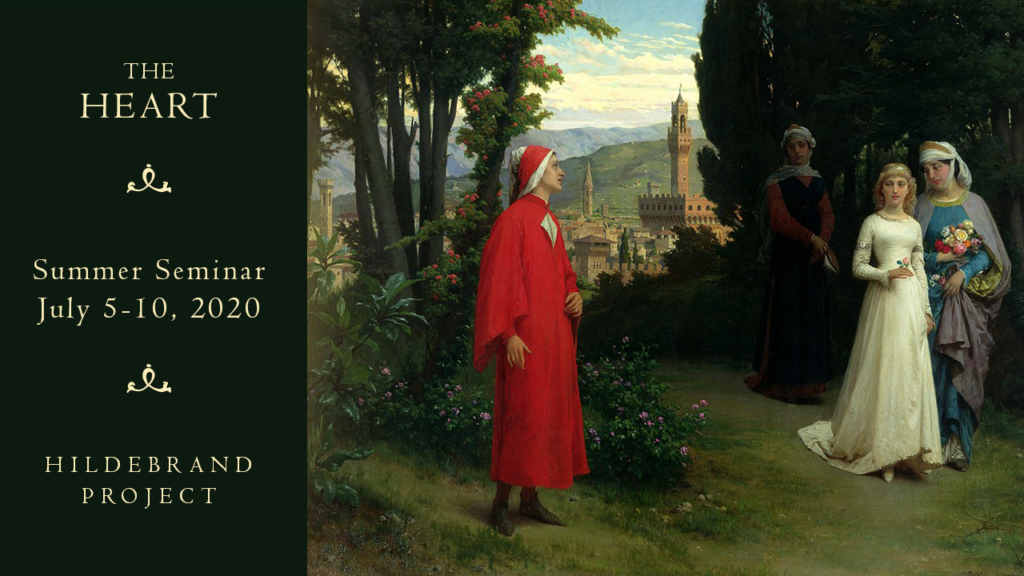
In many respects, the heart is more the real self of the person than his intellect or will.
Dietrich von Hildebrand
The Heart
The theme of the 2020 Hildebrand Project Summer Seminar was “The Heart,” centered around Dietrich von Hildebrand and St. John Henry Newman’s restoration of the heart as central to a philosophy of the human person. Historically, the human heart has oft been neglected by philosophers who give an account of the human person. Many think that human dignity arises mainly from the intellect and from the will, and that the heart is of only secondary importance. In fact, some see in the emotions mainly a threat to thinking clearly and to willing resolutely. Our seminar will focus on those philosophers who have resisted this devaluation of the heart.
Hildebrand and Newman are set in dialogue with a broad selection of thinkers from various traditions who have been sensitive to the role of the heart, including Søren Kierkegaard, Max Scheler, and Gabriel Marcel, and, of course, the classics: Plato, Aristotle, Augustine, and Aquinas. Reflecting together on this rich tradition will lead us to appreciate more deeply the central place of the heart in the human person, with implications for our moral, religious, aesthetic, and social existence.
The Heart – Videos
John Henry Newman on the Heart - (2020 Hildebrand Project Summer Seminar: The Heart)
A lecture by Dr. John F. Crosby on John Henry Newman’s contribution to the rehabilitation of the heart, especially Newman’s sermon “The Thought of ...
Hildebrand on the Heart - Dr. Maria Wolter - (2020 Hildebrand Project Summer Seminar: The Heart)
John Henry Crosby moderates a discussion between Dr. Maria Wolter and Dr. Mark Spencer, touching on the philosophy of Max Scheler and Dietrich von ...
St Thomas Aquinas & Hildebrand on the Heart - (2020 Hildebrand Project Summer Seminar: The Heart)
A discussion between Dr. Beth Rath, Fr. James Brent, O.P., and Dr. Maria Fedoryka on the convergences and divergences between Dietrich von Hildebrand ...
Affectivity and Love - Dr. Maria Wolter - (2020 Hildebrand Project Summer Seminar: The Heart)
John Henry Crosby moderates a discussion between Dr. Maria Wolter and Rocco Buttiglione, discussing the idea that “The heart as the real self,” a ...
The Rediscovery of the Heart - Max Scheler - (2020 Hildebrand Project Summer Seminar: The Heart)
Discussion with Rocco Buttiglione and Anthony Stadlen on the achievement of Max Scheler and Dietrich von Hildebrand in recovering the heart within ...
Feeling and Knowing - (2020 Hildebrand Project Summer Seminar: The Heart)
John Henry Crosby moderates a conversation between Dr. Maria Fedoryka, Fr. James Dominic Brent, O.P, and Dr. James Matthew Wilson. Questions that ...
2020 Seminar Faculty
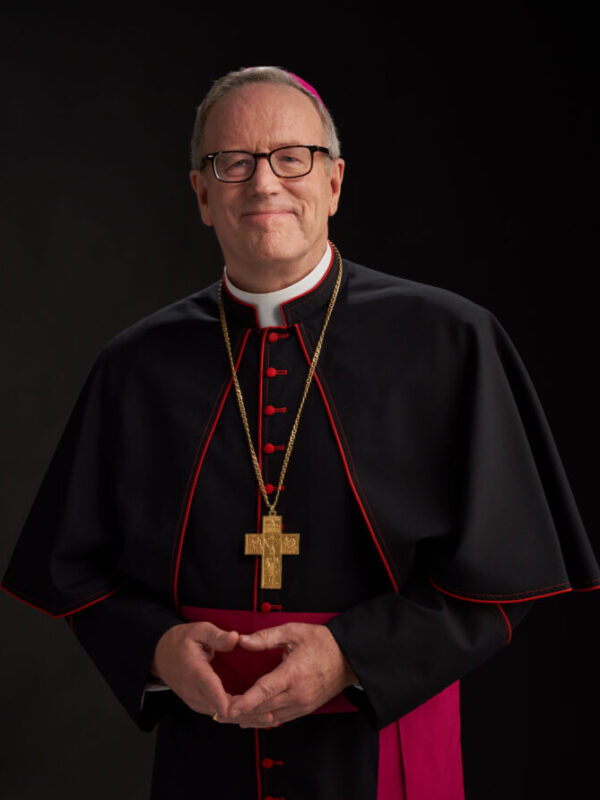
Bishop Robert Barron
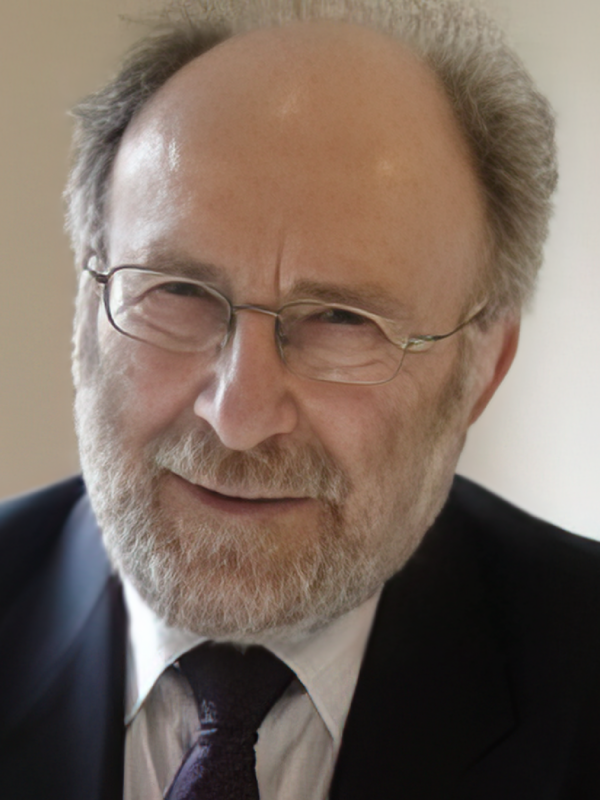
Anthony Stadlen
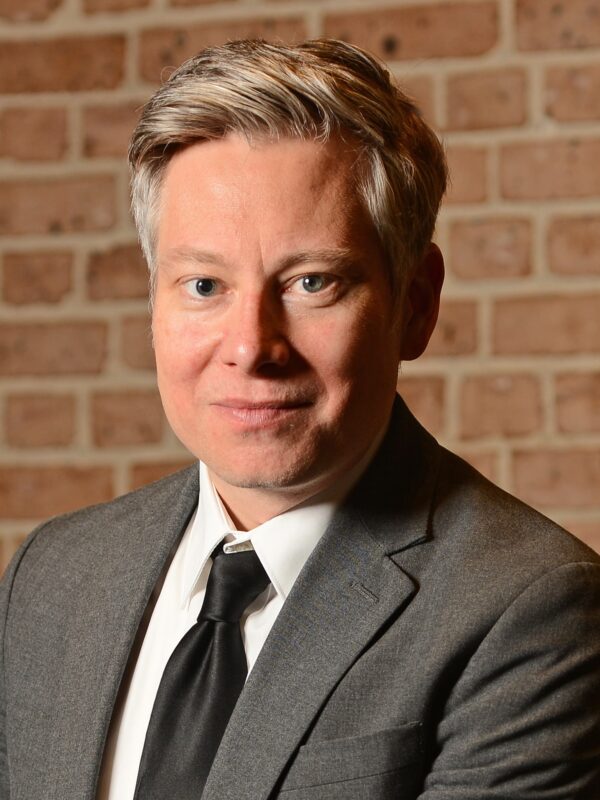
James Matthew Wilson
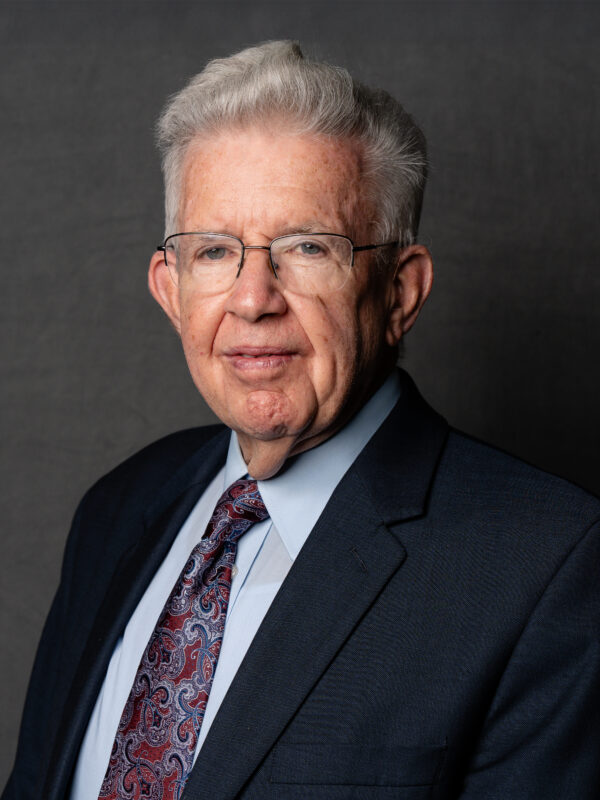
John F. Crosby
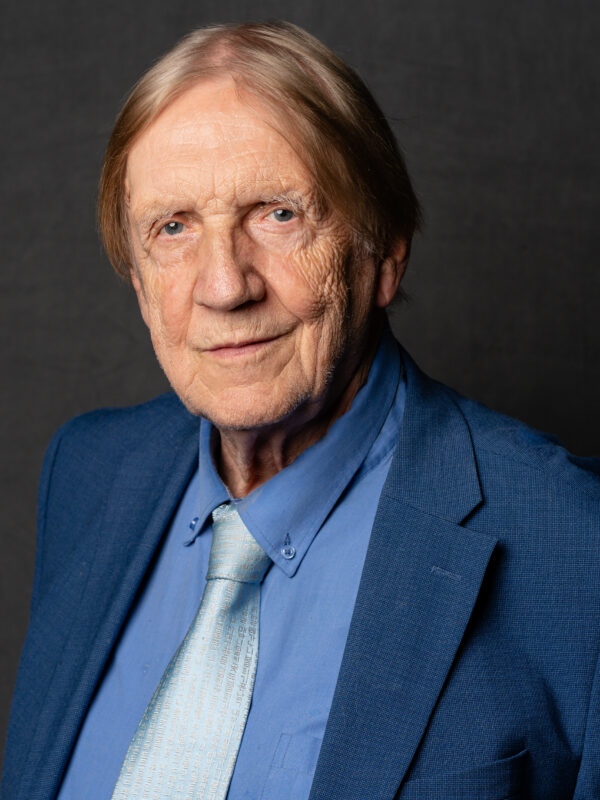
Josef Seifert
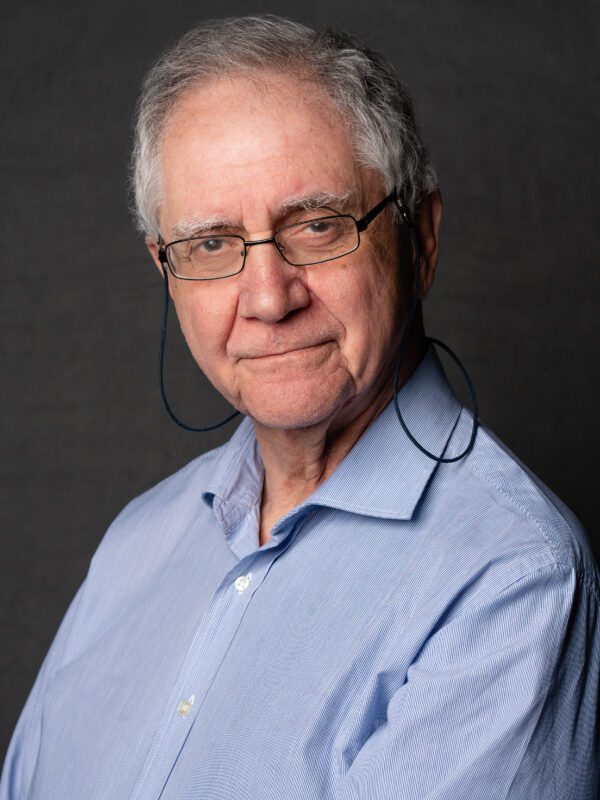
Rocco Buttiglione
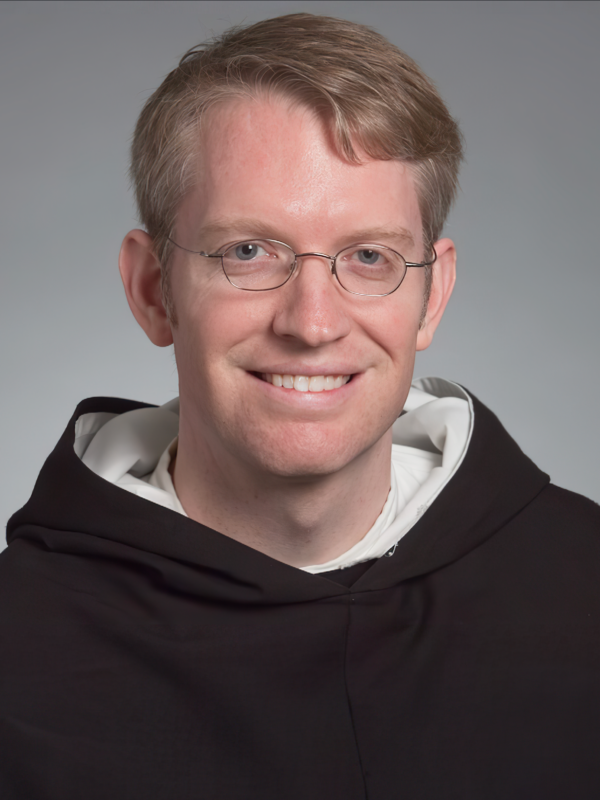
Fr. James Dominic Brent, O.P
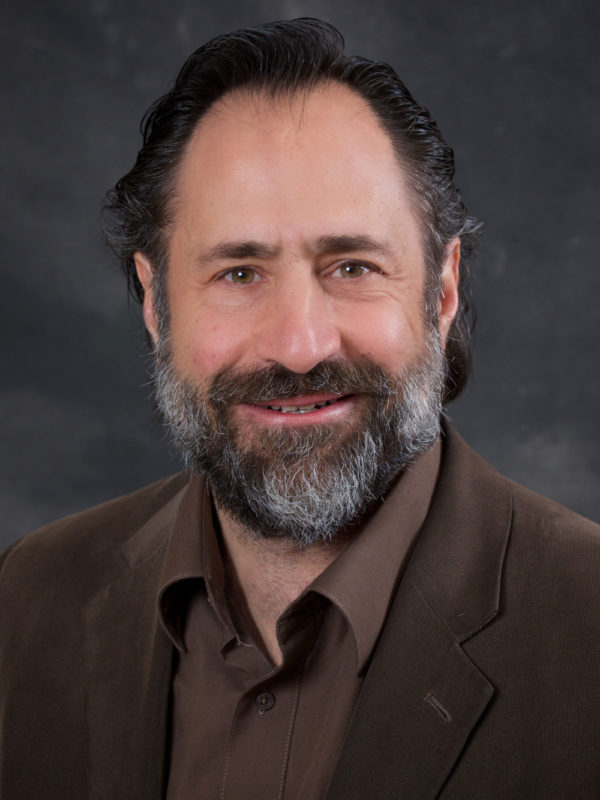
Peter J. Colosi
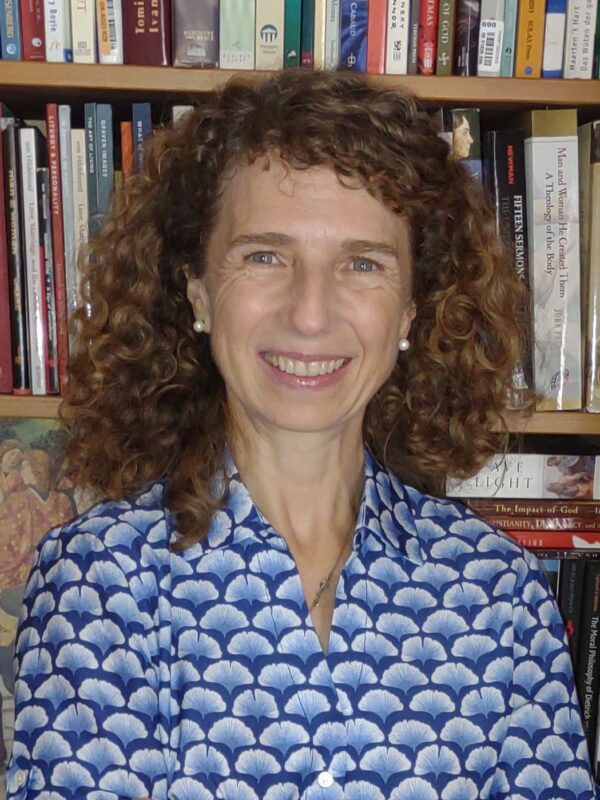
Maria Fedoryka
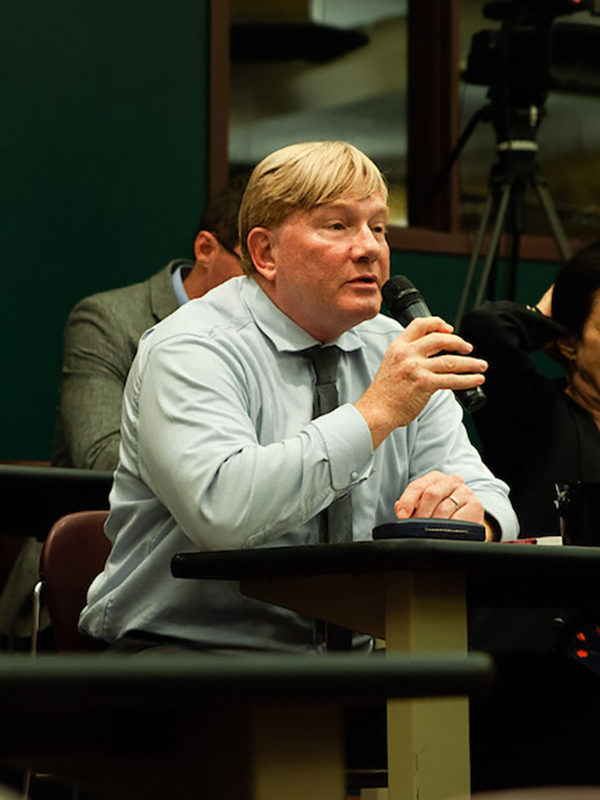
Derek S. Jefferys
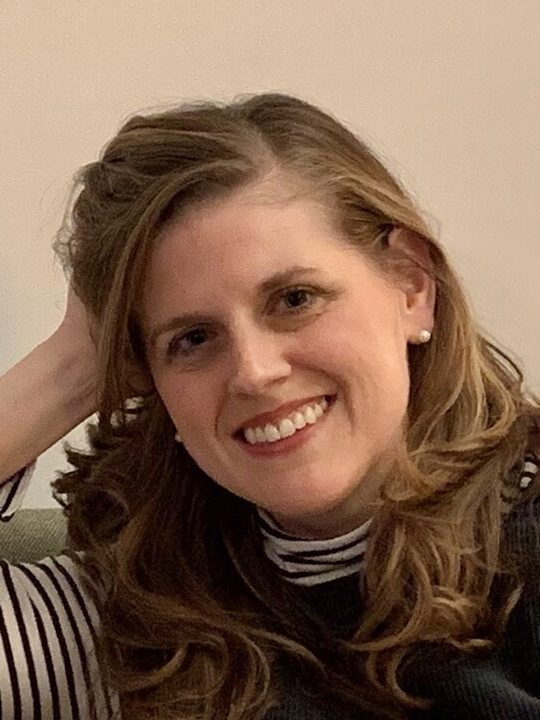
Beth A. Rath
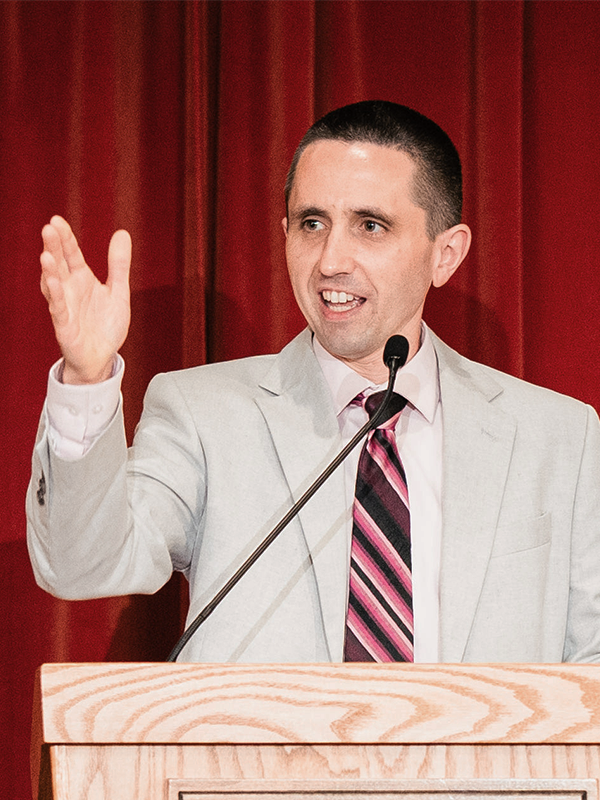
Mark K. Spencer
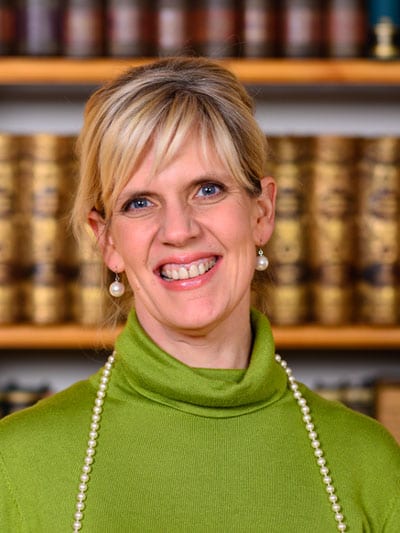
Maria Wolter
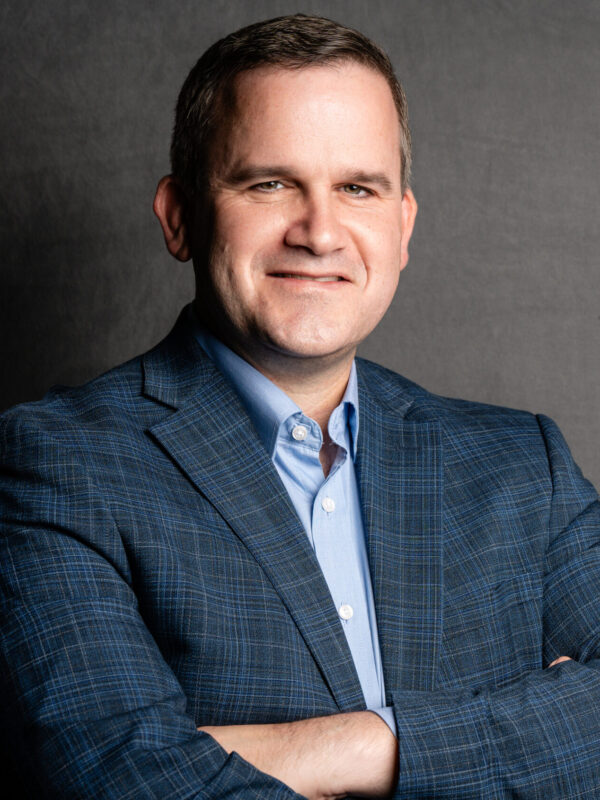
John Henry Crosby
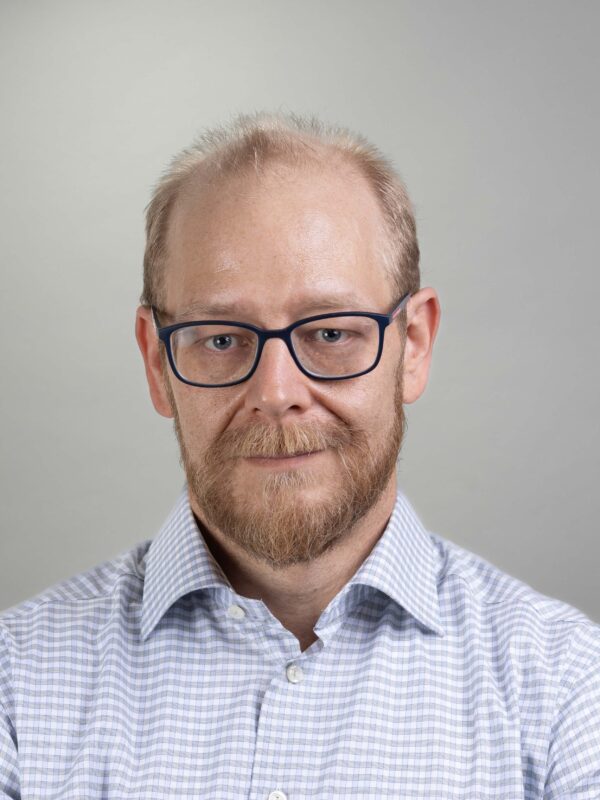
Christopher T. Haley
Bishop Robert Barron
Bishop Robert Barron is the founder of Word on Fire Catholic Ministries and bishop of the Diocese of Winona-Rochester in Minnesota. He is also the host of CATHOLICISM, a groundbreaking, award-winning documentary about the Catholic Faith, which aired on PBS. Bishop Barron is a #1 Amazon bestselling author and has published numerous books, essays, and articles on theology and the spiritual life. He is a religion correspondent for NBC and has also appeared on FOX News, CNN, and EWTN. Bishop Barron’s website, WordOnFire.org, reaches millions of people each year, and he is one of the most-followed Catholics on social media. His regular YouTube videos have been viewed over 90 million times. Bishop Barron’s pioneering work in evangelizing through the new media led Francis Cardinal George to describe him as “one of the Church’s best messengers.” He has keynoted many conferences and events all over the world, including the 2016 World Youth Day in Kraków, Poland, as well as the 2015 World Meeting of Families in Philadelphia, which marked Pope Francis’ historic visit to the United States.
Anthony Stadlen
Anthony Stadlen is a practising Daseinsanalyst, teacher, and supervisor, the Independent Effective Member for UK of the International Federation of Daseinsanalysis. Since 1977, he has conducted research, supported by the Nuffield Foundation, sponsored by the Department of Philosophy at the University of Essex, England, on the paradigmatic case-studies of psychoanalysis and psychotherapy. Since 1996 he has convened the Inner Circle Seminars, a search for truth in psychotherapy. He is an Honorary Visiting Fellow of Regent s School of Psychotherapy and Psychology, London. He is a former Research Fellow of the Freud Museum, London. He received the 2003 Thomas S. Szasz Award for Outstanding Contributions to the Cause of Civil Liberties (professional category).
James Matthew Wilson
James Matthew Wilson is the Cullen Foundation Chair in English Literature and the founding director of the MFA program in Creative Writing at the University of Saint Thomas. The author of eleven books, his most recent collection of poems, The Strangeness of the Good (2020), won the poetry book of the year award from the Catholic Media Awards. The Dallas Institute of Humanities awarded him the Hiett Prize in 2017; Memoria College gave him the Parnassus Prize, in 2022; and the Conference on Christianity and Literature twice gave him the Lionel Basney Award. He serves as poet-in-residence of the Benedict XVI Institute, editor of Colosseum Books, and poetry editor of Modern Age magazine. His next book, Catholic Modernism and the Irish “Avant-Garde” will be published in 2023.
John F. Crosby
Franciscan University of Steubenville
Professor Emeritus of Philosophy
Research Areas:
Personalism, John Henry Newman, John Paul II, Dietrich von Hildebrand
Prof. Crosby was himself a student of Dietrich Hildebrand. Besides writing major studies on the thought of John Henry Newman, Max Scheler, and Karol Wojtyla/John Paul II, and making his own contributions to personalist philosophy, Prof. Crosby has devoted his long and distinguished academic career—first at the University of Dallas, then at the International Academy of Philosophy, and currently at Franciscan University of Steubenville—to introducing his students to the intellectual legacy of Hildebrand, and also to making Hildebrand better known in scholarly circles. Prof. Crosby was the translator of the English edition of Hildebrand’s philosophical masterpiece, The Nature of Love, and he also serves as the General Editor of all our present and future translations of Hildebrand’s works.
Josef Seifert
Professor Seifert received his doctorate in philosophy from the University of Salzburg in 1969 and, under Professor Robert Spaemann, his habilitation from the University of Munich (Privatdozent) in 1975. He studied chiefly under Balduin Schwarz, the most distinguished German former student of Dietrich von Hildebrand, at the University of Salzburg, and under Gabriel Marcel in Paris. Already as a child (from age 3 on) he knew Hildebrand personally, because Seifert’s mother had been a student of Hildebrand in Munich and both of his parents were Hildebrand’s friends. He is the author of many books, and Europe’s leading student and teacher of Hildebrand’s philosophy.
Rocco Buttiglione
A trusted collaborator of Pope St. John Paul II, and is an authority on his philosophical anthropology. His book Karol Wojtyla: The Thought of the Man who became Pope John Paul II is a fundamental work on the pope’s early philosophy. A member of the Italian Parliament for over two decades, he serves on the Pontifical Academy of Social Sciences and holds the John Paul II Chair for Philosophy and History of European Institutions at the Lateran University in Rome. He is a Distinguished Fellow of the Hildebrand Project.
Fr. James Dominic Brent, O.P
Pontifical Faculty of the Immaculate Conception
Assistant Professor of Philosophy
Fr. James Dominic Brent, O.P. was born and raised in Michigan. He pursued his undergraduate and graduate studies in Philosophy and completed his doctorate in Philosophy at Saint Louis University on the epistemic status of Christian beliefs according to Saint Thomas Aquinas. He has articles in the Internet Encyclopedia of Philosophy on Natural Theology in the Oxford Handbook of Thomas Aquinas on “God’s Knowledge and Will”, and an article forthcoming on “Thomas Aquinas” in the Oxford Handbook of the Epistemology of Theology. He earned his STL from the Pontifical Faculty of the Immaculate Conception, and was ordained a priest in the same year. He taught in the School of Philosophy at The Catholic University of America from 2010- 2014 and spent the year of 2014-2015 doing full-time itinerant preaching on college campuses across the United States. He now teaches full-time at the Pontifical Faculty of the Immaculate Conception.
Research Areas:
Epistemology; Aquinas, Knowledge,
Peter J. Colosi
Peter J. Colosi is associate professor of philosophy at Salve Regina University in Newport, Rhode Island, before that having taught at St. Charles Borromeo Seminary in Philadelphia and at the Austrian Program of Franciscan University of Steubenville. He earned his BS in mathematics from Franciscan University, an MA in Franciscan Studies from St. Bonaventure University, and his MPhil and PhD from The International Academy of Philosophy in the Principality of Liechtenstein. Dr. Colosi has published articles, book chapters and pieces in online outlets in areas including philosophical personalism, medical ethics, Catholic social and moral teaching, and Franciscan studies, and is a contributing editor of the Linacre Quarterly. He is co-founder and one of the main organizers of the Theology of the Body International Symposia, of which there have been five thus far, in Austria, Ireland, England, Portugal and Holland. He is a co-founder and co-organizer of and lecturer at the Medical Student and Resident Boot Camp of the Catholic Medical Association which occurs every June and began in 2013, and he is occasionally interviewed on Doctor, Doctor, the official radio program of the Catholic Medical Association, and on Relevant Radio.
Salve Regina University
Associate Professor of Philosophy
Research Areas:
The Body/Soul Question; Philosophical Personalism; Catholic Medical Ethics; Catholic Social and Moral Teaching
Select Bibliography
“The Importance of Philosophical Arguments for the Reality of the Spiritual Soul in Prolife Work.” Life and Learning XXIX, Proceedings of the Twenty-Fifth University Faculty for Life Conference, edited by Joseph W. Koterski, (2019), 107 – 21.
“Discussing the Spiritual Soul in the Classroom.” National Catholic Bioethics Quarterly. 18, no. 3 (2018), 417 – 26.
“The United States Bishops vs. the HHS Contraception Mandate: A Question of Religious Freedom, Moral Truth, or Both?” in Why Humanae Vitae Is Still Right, edited by Janet E. Smith, 327 – 51. San Francisco: Ignatius Press, 2018.
“A Catholic Anthropology and Medical Ethics.” in Catholic Witness in Health Care: Practicing Medicine in Truth and Love, edited by John M. Travaline and Louise A. Mitchell, 31 – 69. Washington, D.C.: Catholic University of America Press, 2017.
“Ratzinger, Habermas and Pera on Public Reason and Religion.” Logos: A Journal of Catholic Thought and Culture 19, no. 3 (2016), 148 – 169.
“Christian Personalism vs. Contemporary Utilitarianism: The Cognitive Dimension of Love and its Relation to Moral Decision Making.” in The Love of Truth: All Truth and in Every Thing. Essays in Honor of Josef Seifert on the Occasion of his 65th Birthday, edited by Carlos A. Casanova, 391 – 406. San Tiago, Chile: Ediciones UC, 2010.
“John Paul II and Christian Personalism vs. Peter Singer and Utilitarianism: Two Radically Opposed Conceptions of the Nature and Meaning of Suffering.” Ethics Education, 15, no. 1 (2009), 20 – 41.
“The Uniqueness of Persons in the Life and Thought of Karol Wojtyła/Pope John Paul II, with Emphasis on His Indebtedness to Max Scheler.” in Karol Wojtyla’s Philosophical Legacy, edited by Nancy Mardas Billias, Agnes B. Curry and George F. McLean, 61 – 100. Washington, D.C.: The Council for Research in Values and Philosophy, 2008.
“Personhood, the Soul and Non-Conscious Human Beings: Some Critical Reflections on Recent Forms of Argumentation within the Pro-Life Movement.” Life and Learning XVII, Conference Proceedings of University Faculty for Life at Villanova University 2007, edited by Joseph W. Koterski, S.J., (2008), 277 – 304.
Professionally recorded lecture: “Body Soul Unity in Human Persons.” Delivered at the 6th Annual Catholic Medical Association Medical Student and Resident Boot Camp (2018). In this lecture I explore the mystery of the union of body and soul in human persons and mention many of the early and contemporary personalists throughout.
Maria Fedoryka
Dr. Maria Fedoryka lectures and publishes in both academic and popular fora in the field of the philosophy of love, examining issues spanning from the centrality of love in the being of God, to its role at the center of creation, to its meaning for marriage, family, and sexuality. Having been captivated by the writings of Dietrich von Hildebrand as a teenager and deeply drawn to his phenomenological and personalist philosophy, she pursued her studies under Josef Seifert and John Crosby at the International Academy of Philosophy. Among her scholarly writings are an analysis of Dietrich von Hildebrand’s philosophy of marital intimacy and procreation titled Finis superabundant Operis: Refining an Ancient Cause for Understanding the Spousal Act in the ACPQ, and “‘God is Love’”: Personal Plurality as the Completion of Aristotle’s Notion of Substance and Love as the Absolute Ground of the Divine Being” in the Proceedings of the ACPA. Among her popular publications are the booklet The Special Gift of Women for God, the Family and the World published by the Catholic Truth Society in England. She is currently working on an article comparing Hildebrand’s and Aquinas’s philosophy of affectivity, as well as an article on Hildebrand’s theory of motivation as the key to understanding deliberate moral wrongdoing.
Ave Maria University
Associate Professor
Research Areas:
Philosophy of Love
Select Bibliography
“A Comparison of Aquinas on the Passions and Affectiones and Hildebrand on ‘Genuinely Spiritual Affectivity’”. Paper delivered at Colloquium on the Heart sponsored by the Hildebrand Legacy Project. University of Dallas, February 2020
“Is Moral Evil Only Privation? Another Look”. Paper delivered at The True, the Good, and the Beautiful – and the Encounter with Evil Fellowship of Catholic Scholars Annual Convention. Montreal, Quebec, September 2019
Forthcoming: “Does Gender Matter for Marriage? The Centrality of Masculinity and Femininity to Marriage as Mutual Self-Gift in the Theology of the Body” in Dutch Communio, proceedings of the 5th International Theology of the Body Symposium, Kerkrade: 2019
Book review for Review of Metaphysics of Dietrich von Hildebrand’s Graven Images
“‘God is Love’: Personal Plurality as the Completion of Aristotle’s Notion of Substance and Love as the Absolute Ground of the Divine Being” in Proceedings of the American Catholic Philosophical Quarterly 2019
“Human Sexuality: The Battle for the Human Soul” in Mary and the Crisis in the Church, ed. Roger Nutt. Sapientia Press: 2019
“Von Hildebrand, Love and Contraception”, in Humana Vitae, 50 Years Later: Embracing God’s Vision for Marriage, Love, and Life, ed. Theresa Notare. CUA Press: 2019
“Only Union Plus Love Equals Fruitfulness: A Personalist Reflects on the Teaching of Humanae Vitae” in Why Humanae Vitae is Still Right, ed. Janet Smith. Ignatius Press: 2018
“Finis Superabundant Operis: Refining an Ancient Cause for Explaining the Conjugal Act” in American Catholic Philosophical Quarterly, Vol. 90, no. 3, 2016, 477-498
The Special Vocation of Women: for God the family and the World, Catholic Truth Society Publications, United Kingdom: 2010
Derek S. Jefferys
Derek S. Jeffreys is a professor of Humanities, Religion and Philosophy at the University of Wisconsin, Green Bay. He did both his B.A. and Ph.D. at the University of Chicago. He has written books on St. John Paul II, ethics and torture and ethics and solitary confinement. His most recent book is America’s Jails: The Search for Human Dignity in An Age of Mass Incarceration. Jeffreys teaches courses on love, Thomas Aquinas, ethics, ethics and punishment, evil, Dante, Buddhism, and other topics. For more than a decade he has been involved in jail and prison education, giving volunteer religion and philosophy lectures to inmates in Wisconsin’s jails and prisons. He is married and proud father of twin boys.
University of Wisconsin, Green Bay
Professor
Research Areas:
Personalism, Personalism and Violence, Personalism and Incarceration
Select Bibliography
Jeffreys, Derek S. Defending Human Dignity: John Paul II and Political Realism . Grand, Rapids, MI: Brazos Press, 2004.
Jeffreys, Derek S. Spirituality and the Ethics of Torture. New York, NY: Palgrave Macmillan, 2009.
Jeffreys, Derek S. Spirituality in Dark Places: The Ethics of Solitary Confinement. New York, NY: Palgrave Macmillan, 2013.
Jeffreys, Derek S. America’s Jails: The Search for Human Dignity in an Age of Mass Incarceration. New York, NY: New York University Press, 2018.
Jeffreys, Derek S. “Personalists are not Kantians: Robert Kraynak and the Value of the Person,” Journal of Markets and Morality 7, no. 2 (October 2004): 507-516.
Jeffreys, Derek S. “Ignoring Thomistic Metaphysics: A Reply to Robert Kraynak,” Journal of Markets and Morality 7, no. 2 (October 2004): 527-531.
Jeffreys, Derek S. “Cruel but not Unusual: Derek Jeffreys on Solitary Confinement,” Commonweal, June 13, 2014: 20-23.
Jeffreys, Derek S. C-Span Book Interview on Spirituality in Dark Places: The Ethics of Solitary Confinement, September 23, 2014.
Beth A. Rath
Beth. A. Rath is Assistant Professor of Philosophy at Borromeo Seminary in Cleveland, OH. Her first formal experience with philosophy was as a teenager. She heard a lecture on Descartes, and from there she was intrigued by the sorts of questions philosophers ask. Beth went on to study philosophy and theology at Franciscan University of Steubenville, where she first encountered the work of St. Thomas Aquinas and personalism. There she heard a lecture by Alice von Hildebrand that changed the trajectory of her life and inspired her to pursue graduate studies in philosophy. She completed her doctorate in philosophy at Saint Louis University, with an emphasis on the nature of the human person, moral philosophy, and themes at the intersection of philosophy and theology. At Borromeo, Beth teaches a wide variety of philosophy courses to both seminarians and lay students, and she co-teaches Tolle Lege, a Catholic ‘nerd camp’ for high school seniors in the Diocese of Cleveland.
Borromeo Seminary
Associate Professor of Philosophy
Research Areas:
Philosophical Anthropology, Philosophy of Religion, Ethics,
and the work of Thomas Aquinas (Thomism)
Select Bibliography
Manuscript in Progress: Philosophy in Seminary Formation. Institute for Priestly Formation. Forthcoming in 2021 or 2022.
“Are There Any True Moral Enhancements: Aristotelian and Thomistic Perspectives.” European Journal for Philosophy of Religion (accepted, should be forthcoming in 2021).
“Emotions and the Moral Life in Aquinas and Hildebrand.” Paper delivered at the Hildebrand Project Summer Seminar. July 2020.
“On the Impossibility of Engineering Moral Virtue.” Oxford University, Ian Ramsey Centre. Transhumanism, Posthumanism, and Supernaturalism Conference. July 2018.
“Christ’s Faith, Doubt, and the Cry of Dereliction.” International Journal for Philosophy of Religion 81 (2017): 161-169.
Mark K. Spencer
University of St Thomas, MN Professor of Philosophy
Research Areas: Philosophical Anthropology, Aesthetics, Metaphysics, Philosophical Theology
Dr. Mark K. Spencer, Ph.D. is a Professor of philosophy at the University of St. Thomas in Minnesota. Spencer fell in love with philosophy in high school when he first encountered the writings of Albert Camus and St. Thomas Aquinas. He earned his Ph.D. from the University at Buffalo, and his M.A. and B.A. from Franciscan University of Steubenville, where he first encountered the work of Dietrich von Hildebrand. He is the author of 2 books and over 60 papers and reviews, mostly focusing on the nature of the human person, beauty, and God’s relations to us. In his research, he above all tries to synthesize many traditions’ approaches to these topics, drawing on the scholastic, phenomenological, analytic, and Greek Patristic traditions. Among the things he takes greatest delight in is introducing students to the insights of these traditions, so as to help them better perceive and contemplate reality, for which he finds the work of von Hildebrand an indispensable guide. He lives in St. Paul, Minnesota, with his wife, Susanna, and their four children. Together, they especially enjoy hiking, camping, reading novels, watching films, gardening, and homeschooling.
Select Bibliography
“Created Persons are Subsistent Relations: A Scholastic-Phenomenological Synthesis.” Proceedings of the American Catholic Philosophical Association 89, Analyzing Catholic Philosophy (2015): 225-243.
“Aristotelian Substance and Personalistic Subjectivity.” International Philosophical Quarterly 55:2 (June 2015): 145-164.
“Divine Causality and Created Freedom: A Thomistic Personalist View.” Nova et Vetera 14:3 (Summer 2016): 375-419.
“The Many Powers of the Human Soul: Von Hildebrand’s Contribution to Scholastic Philosophical Anthropology,” American Catholic Philosophical Quarterly 91:4, Special Issue on Dietrich Von Hildebrand (Fall 2017): 719-735.
“Perceiving the Image of God in the Whole Human Person,” The Saint Anselm Journal 13:2 (Spring 2018): 1-18.
“Sense Perception and the Flourishing of the Human Person in von Hildebrand and the Aristotelian Traditions,” Tópicos, Revista de Filosofía 56 (2019): 95-118.
“Beauty and Being in von Hildebrand and the Aristotelian Tradition,” The Review of Metaphysics 73:2 (December 2019): 311-334.
“Covenantal Metaphysics and Cosmological Metaphysics: An Aesthetic Critique and an Aesthetic Synthesis”, The Saint Anselm Journal 15:2 (Spring 2020): forthcoming.
“Beauty and the Intellectual Virtues in Aristotle,” in Beauty and the Good: Past Interpretations and Their Contemporary Relevance ed. Alice Ramos, (Washington: The Catholic University of America Press, 2020).
Maria Wolter
Dr. Wolter graduated with a B.A. in Philosophy, Theology, and History from Franciscan University of Steubenville. She pursued her M.A. in Philosophy, as well as her STB, M.A., and STL in Theology at the Katholieke Universiteit in Leuven (KUL), Belgium, where she also received her Ph.D. in Philosophy. An Austrian-American national, she returned to Austria upon receiving her present appointment at Franciscan University of Steubenville at its Study Abroad Program in Gaming, Austria, in 2007.
Franciscan University, Austria Program
Instructor of Philosophy
Research Areas:
Phenomenology, Modern and Renaissance Philosophy, Axiology, Personalism, and Ethics.
John Henry Crosby
John Henry Crosby is a translator, writer, critic, and cultural entrepreneur.
Late in 2003, searching for a life’s work that could integrate the quest for truth, the existential need for beauty, and the service of a great good, and beginning to despair of ever finding such a mission, he called Alice von Hildebrand to propose that he spend one year translating her late husband’s Aesthetics. Would she help, he asked.
She did, and her blessing transformed his one-year plan into lifelong mission that soon attracted the collaboration of others. Thus, the life’s work he had sought found him. Established in February 2004, the Hildebrand Project’s mission to renew culture has grown to encompass publications, events, fellowships, and online resources that draw on the continuing vitality of Dietrich von Hildebrand’s thought and witness.
Under his leadership, the Hildebrand Project has become the world’s leading organization dedicated to Dietrich von Hildebrand’s legacy. The Project has been supported by many leading foundations and donors, including the Bradley Foundation, Chiaroscuro Foundation, Earhart Foundation, Fieldstead & Company, Henry Luce Foundation, Luddy Charitable Foundation, the National Endowment for the Arts, Our Sunday Visitor Institute, Papal Foundation, and the Raskob Foundation.
He was the editor of a new edition of Dietrich von Hildebrand’s The Heart (St. Augustine’s Press, 2007). He joined John F. Crosby as co-translator of Hildebrand’s major philosophical work, The Nature of Love (St. Augustine’s Press, 2009). He edited Selected Papers in the Philosophy of Dietrich von Hildebrand (2012), the first major volume of essays on von Hildebrand in two decades. Most recently he is the primary compiler, editor, and translator of Hildebrand’s anti-Nazi papers, My Battle Against Hitler (Random House, 2014).
His work has been featured in both popular (e.g., The Daily Beast) and scholarly publications (Logos Journal). His numerous radio appearances have taken him from PRI’s The Takeaway to the Hugh Hewitt Show. He was host of He Dared Speak the Truth, a 14-part television series on the life of Dietrich von Hildebrand, which aired on EWTN (2014).
Son of an Austrian mother and an American father, his mother tongue was German. Both his undergraduate studies in philosophy, history, and literature (2000) as well as his graduate studies in philosophy (2001) were pursued at Franciscan University of Steubenville, Ohio.
He was for many years a violinist. As a student of Daniel Heifetz, he was formed in the great violinistic traditions of Henryk Szeryng, David Oistrakh, and Ivan Galamian.
He serves as a trustee of The Personalist Project.
In 2010 he married Robin-Marie Bobak. Through their marriage—and all the more with the birth of their children Magdalene (2011), Robin (2013), John Henry, Jr. (2015), and Peter—he has found (or, again, been found by) an integration of the good, true, and beautiful far greater than any he has ever known.
Christopher T. Haley
“Only the brave return to the source.” — a favorite line from a Hölderlin poem. For Christopher, the source was beauty. Philosophy has always captured his interest, but it was beauty that was his first love, that first broke his heart (and a broken heart the Lord will not refuse, Ps. 51). After many years in school studying philosophy at St. Edward’s University (where he discovered Catholicism) ancient languages at the University of Texas (where he converted from atheism to Catholicism), and the University of Dallas (where he was introduced to Christian Personalism) Christopher misread Aristotle’s Rhetoric and decided that he needed to do something “practical;” so he began working in teaching, marketing, and politics, striking out in new areas with innovative ideas drawn from classical sources (he has a restive habit of starting new projects and companies).
But his restless soul brought him back to philosophy. He had heard of Dietrich von Hildebrand while studying St. Edith Stein at the University of Dallas, and was eagerly awaiting the publication of Hildebrand’s Aesthetics, when one day his mentor at UD suggested that he apply for a Summer Fellowship with the Hildebrand Project. So he dropped everything and applied. Now, Christopher has always had the strange practice of including his favorite poets and composers on his resume, and for once, it worked (he always knew it would!): at the Hildebrand Project, he finally found a place where a love for beauty mattered—and thus he returned to the source.
At the end of his Summer Fellowship, he was so excited about the potential of the Hildebrand Project that he refused to leave, finding clever ways to insert himself into vital operations and creating entire program areas with no one to manage them but himself. As a result, he now oversees the Hildebrand Project’s publishing enterprise, marketing, communications, and has helped pioneer a number of innovative and successful programs.
In his free time—when he gets free time—he likes to listen to classical music, write essays, ride two-wheeled vehicles, and build things. He also hosts a weekly theology symposium at a bar in his beloved state of Texas.






